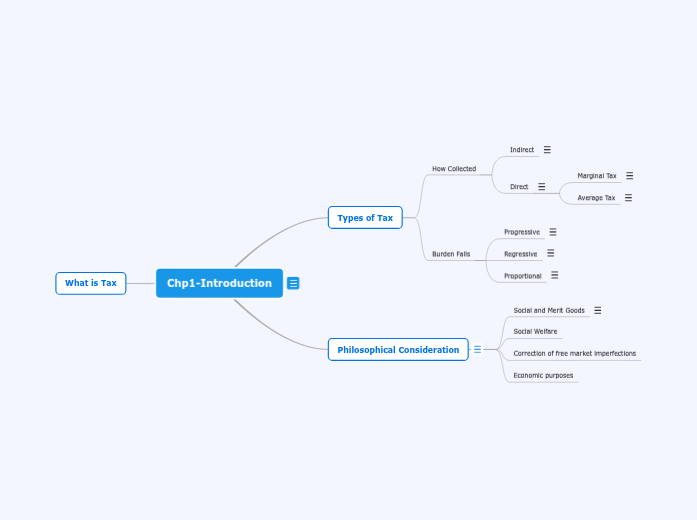Chp1-Introduction
Types of Tax
How Collected
Indirect
Direct
Marginal Tax
Average Tax
Burden Falls
Progressive
Regressive
Proportional
Philosophical Consideration
Social and Merit Goods
Social Welfare
Correction of free market imperfections
Economic purposes
